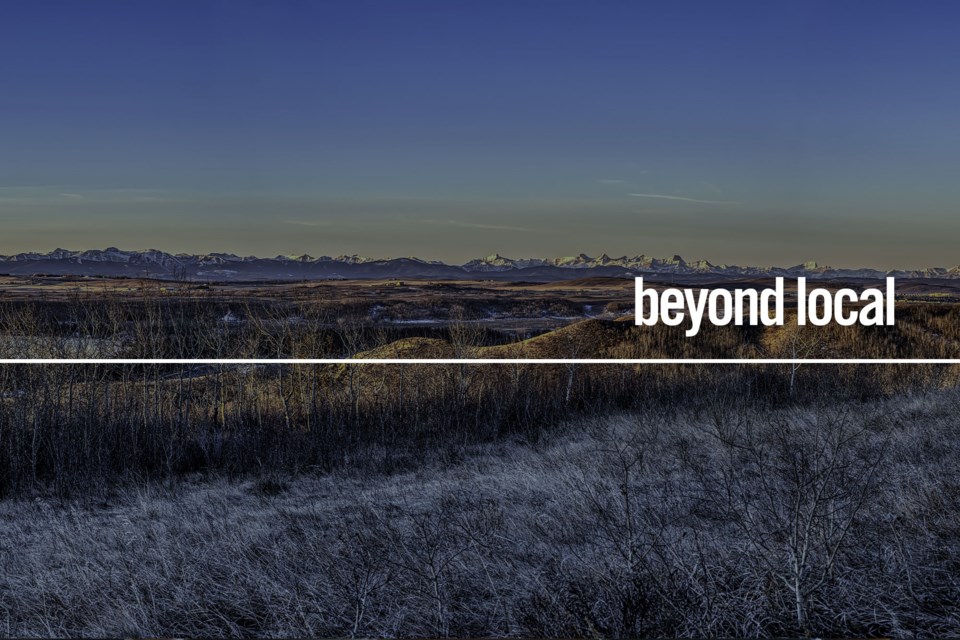Would you expect your pharmacy to be open in the wake of a disaster or state of local emergency? What would you do if you lost access to critical medication?
Researcher Kaitlyn Watson believes it is important for pharmacies to develop disaster-preparedness plans, and ensure those plans take community expectations into account.
"There is quite a huge expectation in our communities that pharmacies will be open and will be available for immediate health care needs," Watson said in an interview.
Watson, originally from Australia, is a postdoctoral research fellow at the Epidemiology Coordinating and Research Centre at the University of Alberta and the co-chair of the World Association of Disaster and Emergency Medicine. She is also the founder of Disaster Pharmacy Solutions, a private company that provides emergency-preparedness training for pharmacists.
She said an "all hazards" approach is best for emergency plans, as a community's needs stay the same regardless of the type of disaster.
"What I like to say is that every pharmacist is a disaster pharmacist," Watson said. "Anything can be turned into an emergency that requires you to respond, so we need to be prepared for anything."
Once a pharmacy has determined its patients' expectations, Watson says the next questions to answer are whether it would maintain usual or reduced hours in an emergency, and what risks would exist for staff to travel to work.
Watson said power outages can also be major hurdles, as seen recently during severe snowstorms in parts of southern Ontario near Lake Erie.
"Quite often we rely on our electronic resources for dispensing, prescribing, the drug interaction checking, the resourcing and information, and printing labels," Watson said. She said for pharmacies without backup generators, the main solution for a power outage is doing the work by hand.
Another challenge for pharmacists can be getting desperately needed medication to patients during an emergency, Watson said.
She has heard stories of pharmacists delivering medications on snowmobiles during snowstorms, or even by boat during a flood.
"Now, I'm not necessarily suggesting that's the best course of action in every snowstorm but [pharmacists need to consider their] options and what process [they will] take," Watson said.
Another critical aspect of disaster preparedness, Watson said, is for pharmacists to communicate on a patient-by-patient basis what challenges an emergency situation would create.
"Pharmacies have a wealth of information," Watson said. "We know who our regular patients are, we know the common chronic diseases that we've seen; we know our communities very well."
Watson said during her workshops she asks pharmacists to think about disasters that affect their communities and how they affect patients' medication use.
"I've spoken to a lot of search and rescue groups, and when they go to rescue someone from their house, they're not thinking about making sure the person gets their medication and takes it with them," Watson said.
Continuity of care
Alfred Buenaventura, owner and head pharmacist at Green Apple Pharmacy in St. Albert, told The Gazette in the event of a disaster he would look to the Alberta College of Pharmacy for guidance.
The Alberta College of Pharmacy is the provincial regulatory body for pharmacists.
"The great thing about our college is it provides us with that sort of direction and guidelines and even bylaws to follow in the event of a disaster happening," Buenaventura said.
"We lean towards what they suggest and then go from there."
Buenaventura said the first step would be to ensure patients' medication regimens weren't disrupted.
"Providing or maintaining continuity of care, that's the main thing," Buenaventura said. "It's essential that we have to be open to make sure that our patients get their medications."
"In past instances like the Fort McMurray fire, during that time pharmacies made extra efforts to make sure that they stayed open, that they were able to provide medications to their clientele, extend their medications when they had no more refills or try to get hold of their doctors to get refills."
"It was an onus that we had to keep going and maintain that continuity of care," he said.
Watson says disaster planning is quite often overlooked in the field of pharmacy, but the COVID-19 pandemic has changed how many pharmacists view their contribution to the health care system.
"Pre-COVID, a lot of it was not on anyone's radar," Watson said. "It wasn't on the radar of governments and first responders and other organizations that do disaster management, and it wasn't on the radar of pharmacists either."
"It was very much if something happens, you pull up your bootstraps and you get on as needed."
However, as governments around the world lift pandemic-related public health measures, Watson said she's concerned the role of pharmacists could be forgotten as disaster plans are amended.
"On the back end of COVID, as we're hoping it is, we're starting to forget about the contributions of pharmacy and starting to go to a 'return to normal' kind of operation," she said.
"I think it's a dangerous waste if we don't advocate for how essential we were, get the seat at the table, get the regulations changed, the policies that need to be changed, and get a lot of the lessons learned from our experiences as pharmacists documented out there for people to see."
"That way, we go into the next disaster on a lot stronger footing," Watson said.



